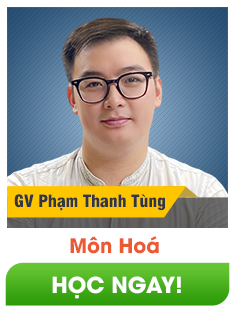Read the following passage and mark the letter A, B, C or D on your answer sheet to indicate the correct answer to each
Read the following passage and mark the letter A, B, C or D on your answer sheet to indicate the correct answer to each of the questions from 44 to 50.
One day, a middle-aged man asked a taxi to take him to see Chelsea play Arsenal at football. He told the driver "Stamford Bridge", the name of Chelsea's stadium, but he was delivered instead to the village of Stamford Bridge in Yorkshire. Of course, he missed the match.
What had happened? With the Sat-Nav system in place, the driver in this story felt he did not need to know where he was going. He confidently outsourced the job of knowing this information to the Sat-Nav. Using an Internet search engine takes a broadband user less than a second. And with smartphones at hand, people will be online almost all of the time.
The same could be true of university education. Today, the average student seems not to value general knowledge. If asked a factual question, they will usually click on a search engine without a second thought. Actually knowing the fact and committing it to memory does not seem to be an issue, it's the case with which we can look it up.
However, general knowledge has never been something that you acquire formally. Instead, we pick it up from all sorts of sources as we go along, often absorbing facts without realising. The question remains, then: is the Internet threatening general knowledge? When I put that to Moira Jones, expert in designing IQ tests, she referred me to the story of the Egyptian god Thoth. It goes like this: Thoth offers writing as a gift to the king of Egypt, declaring it an "elixir of memory and wisdom." But the king is horrified, and tells him: "This invention will induce forgetfulness in the souls of those who have learned it, because they will not need to exercise their memories, being able to rely on what is written."
Who wants to be a millionaire finalist David Swift, responding to the same question, recognizes that there was a problem of young people saying: "I don't need to know that", but he is far more excited about the educational potential of the Internet. "There is so much more information out there, giving people opportunities to boost their general knowledge."
After all, the Internet might just help us to forget more and more. But meanwhile, the continuing popularity of quizzes and game-shows shows us that general knowledge is strong enough to remain.
(Adapted from English Unlimited by Adrian Dolland Ben Goldstein)
Trả lời cho các câu 1, 2, 3, 4, 5, 6, 7 dưới đây:
Which best serves as the title for the passage?
Đáp án đúng là: C
Kiến thức: Đọc hiểu
Đáp án cần chọn là: C
Why did the middle-aged man miss the football match?
Đáp án đúng là: B
Kiến thức: Đọc hiểu
Đáp án cần chọn là: B
The word "outsourced" in paragraph 2 mostly means _____.
Đáp án đúng là: D
Kiến thức: Đọc hiểu
Đáp án cần chọn là: D
The word "that" in paragraph 4 refers to _______.
Đáp án đúng là: B
Kiến thức: Đọc hiểu
Đáp án cần chọn là: B
The word "induce" in paragraph 4 mostly means _________.
Đáp án đúng là: D
Kiến thức: Đọc hiểu
Đáp án cần chọn là: D
Which of the following is TRUE, according to the passage?
Đáp án đúng là: A
Kiến thức: Đọc hiểu
Đáp án cần chọn là: A
Which of the following can be inferred from the passage?
Đáp án đúng là: B
Kiến thức: Đọc hiểu
Dịch bài đọc:
Một ngày nọ, một người đàn ông trung niên yêu cầu taxi chở ông đến để xem Chelsea đá với Arsenal. Ông ta nói với người lái xe "Stamford Bridge", tên sân vận động của Chelsea, nhưng thay vào đó ông được đưa đến ngôi làng Stamford Bridge ở Yorkshire. Tất nhiên, ông ấy đã bỏ lỡ trận đấu.
Chuyện gì đã xảy ra? Với hệ thống định vị Sat-Nav, người lái xe trong câu chuyện này thấy rằng anh ta không cần biết mình sẽ đi đâu. Anh tự tin thuê bên ngoài công việc nhận biết thông tin này cho Sat-Nav. Sử dụng công cụ tìm kiếm trên Internet chỉ mất chưa đầy một giây cho người dùng băng thông rộng. Và với điện thoại thông minh trong tay, mọi người sẽ trực tuyến hầu như mọi lúc.
Điều này cũng có thể đúng với giáo dục đại học. Ngày nay, học sinh trung bình dường như không coi trọng kiến thức phổ thông. Nếu được hỏi một câu hỏi thực tế, họ thường sẽ nhập vào công cụ tìm kiếm mà không cần suy nghĩ kỹ. Trên thực tế, biết thông tin và đưa nó vào bộ nhớ dường như không phải là một vấn đề, vấn đề là cái để chúng ta có thể tra cứu nó.
Tuy nhiên, kiến thức chung chưa bao giờ là thứ mà bạn tiếp thu một cách chính thức. Thay vào đó, chúng ta thu thập nó từ tất cả các nguồn khi chúng ta trải qua, thường tiếp thu các thực tế mà không nhận ra. Sau đó, câu hỏi vẫn còn là: Internet có đe dọa kiến thức chung không? Khi tôi đưa điều đó cho Moira Jones, chuyên gia thiết kế các bài kiểm tra IQ, cô ấy đã gợi ý cho tôi câu chuyện về thần Thoth của Ai Cập. Sự việc diễn ra như thế này: Thoth tặng chữ viết như một món quà cho vua Ai Cập, tuyên bố nó là "thần dược của trí nhớ và trí tuệ." Nhưng nhà vua kinh hoàng, và nói với ông ta: "Phát minh này sẽ gây ra sự đãng trí trong linh hồn của những người đã học nó, bởi vì họ sẽ không cần phải vận động trí nhớ của họ, có thể dựa vào những gì được viết."
David Swift người thi Ai là triệu phú lọt vào chung kết, trả lời câu hỏi tương tự, nhận ra rằng có một vấn đề là những người trẻ tuổi nói: "Tôi không cần biết điều đó", nhưng anh ấy vui mừng hơn nhiều về tiềm năng giáo dục của Internet. "Có rất nhiều thông tin ngoài kia, mang lại cho mọi người cơ hội để nâng cao kiến thức chung của họ."
Rốt cuộc, Internet có thể giúp chúng ta ngày càng quên đi nhiều hơn. Nhưng trong khi đó, sự phổ biến liên tục của các câu đố và chương trình trò chơi cho chúng ta thấy rằng kiến thức chung đủ mạnh để duy trì.
Đáp án cần chọn là: B
Quảng cáo
>> 2K8 Chú ý! Lộ Trình Sun 2026 - 3IN1 - 1 lộ trình ôn 3 kì thi (Luyện thi 26+ TN THPT, 90+ ĐGNL HN, 900+ ĐGNL HCM, 70+ ĐGTD - Click xem ngay) tại Tuyensinh247.com.Đầy đủ theo 3 đầu sách, Thầy Cô giáo giỏi, luyện thi theo 3 giai đoạn: Nền tảng lớp 12, Luyện thi chuyên sâu, Luyện đề đủ dạng đáp ứng mọi kì thi.
 |
 |
 |
 |
 |
 |
 |
 |
Hỗ trợ - Hướng dẫn

-
024.7300.7989
-
1800.6947

(Thời gian hỗ trợ từ 7h đến 22h)
Email: lienhe@tuyensinh247.com











